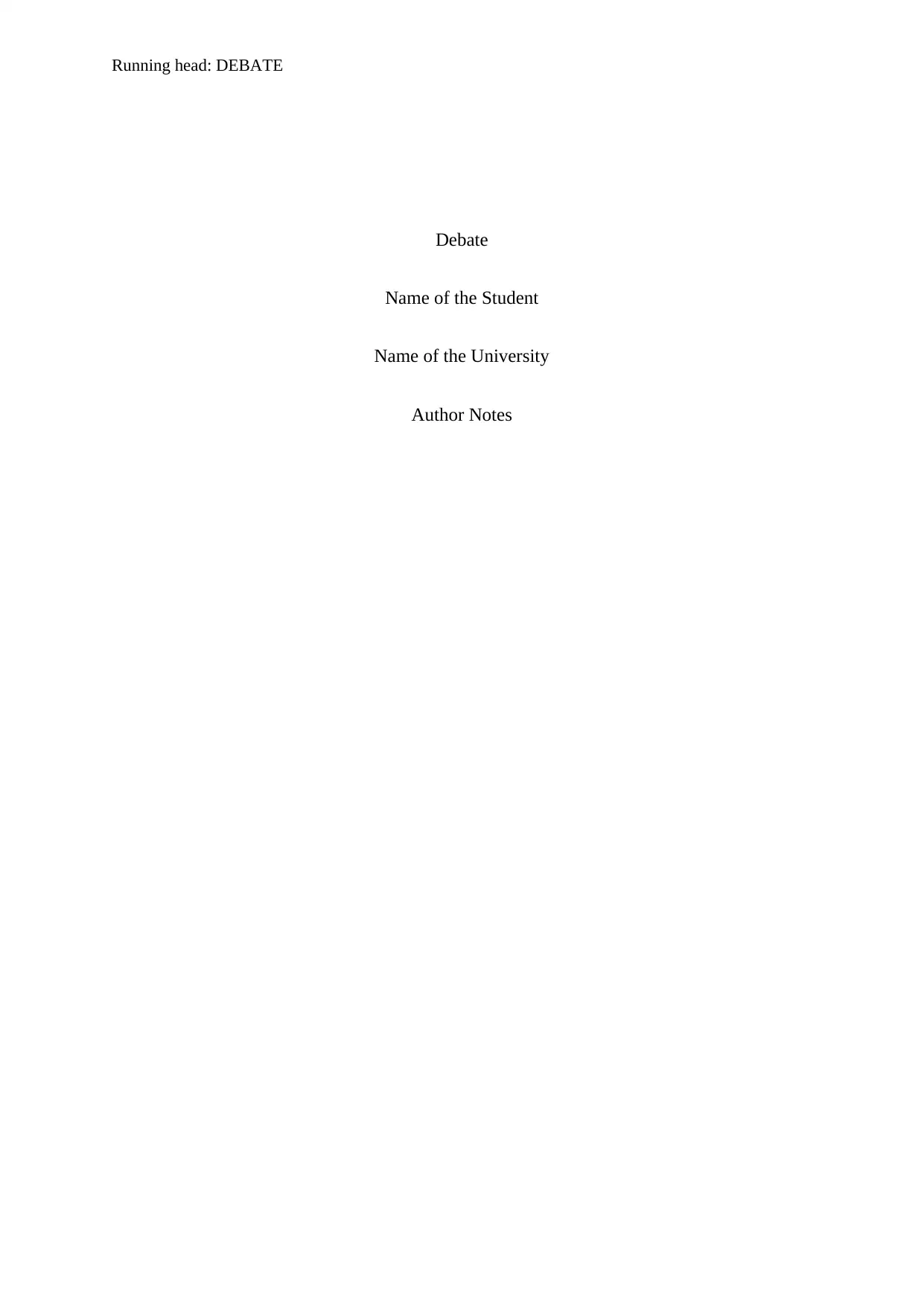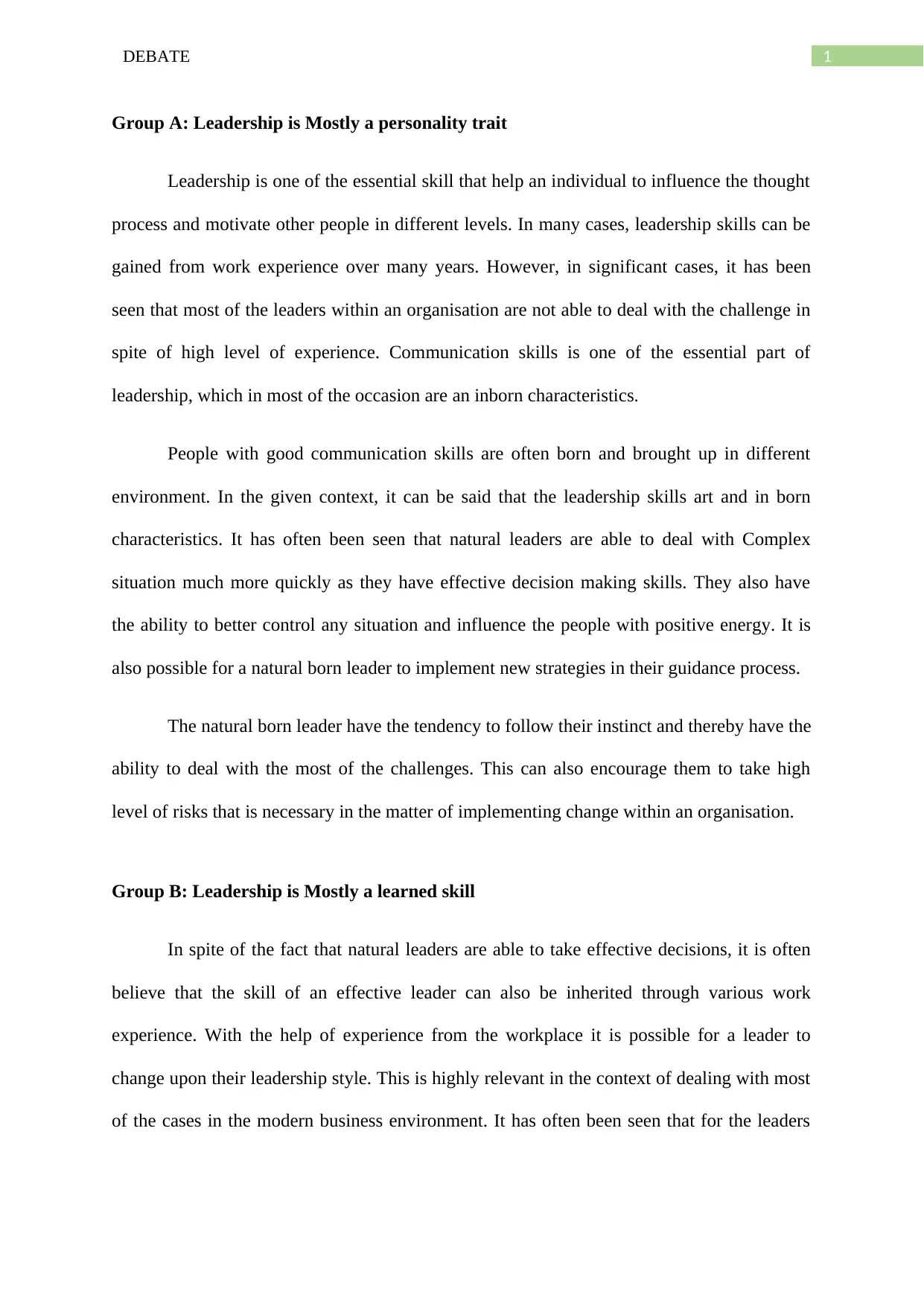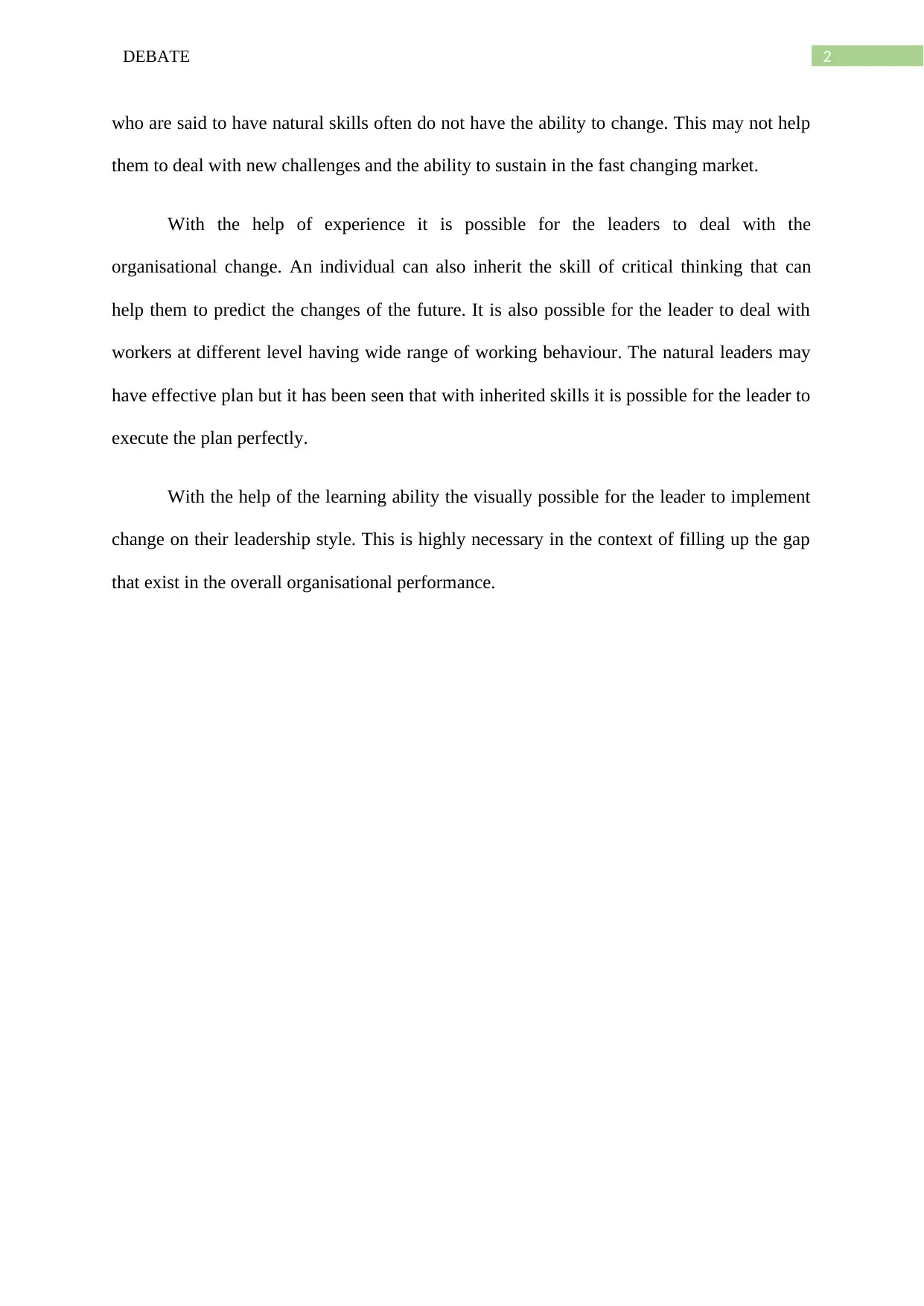Leadership Debate: Exploring Innate vs. Learned Skills
VerifiedAdded on 2020/04/21
|3
|530
|131
Discussion Board Post
AI Summary
This assignment presents a debate on the nature of leadership, with two contrasting viewpoints. Group A argues that leadership is primarily a personality trait, emphasizing the importance of innate communication skills, quick decision-making, and the ability to influence others. They highlight the natural leader's capacity to handle complex situations and implement changes. Conversely, Group B posits that leadership is largely a learned skill, emphasizing the value of experience in adapting leadership styles to meet the challenges of the modern business environment. They suggest that while natural leaders may have inherent strengths, acquired skills through work experience are crucial for adapting to change, critical thinking, and managing diverse teams. The debate underscores the ongoing discussion about the relative importance of innate abilities versus acquired skills in developing effective leadership.
1 out of 3









![[object Object]](/_next/static/media/star-bottom.7253800d.svg)